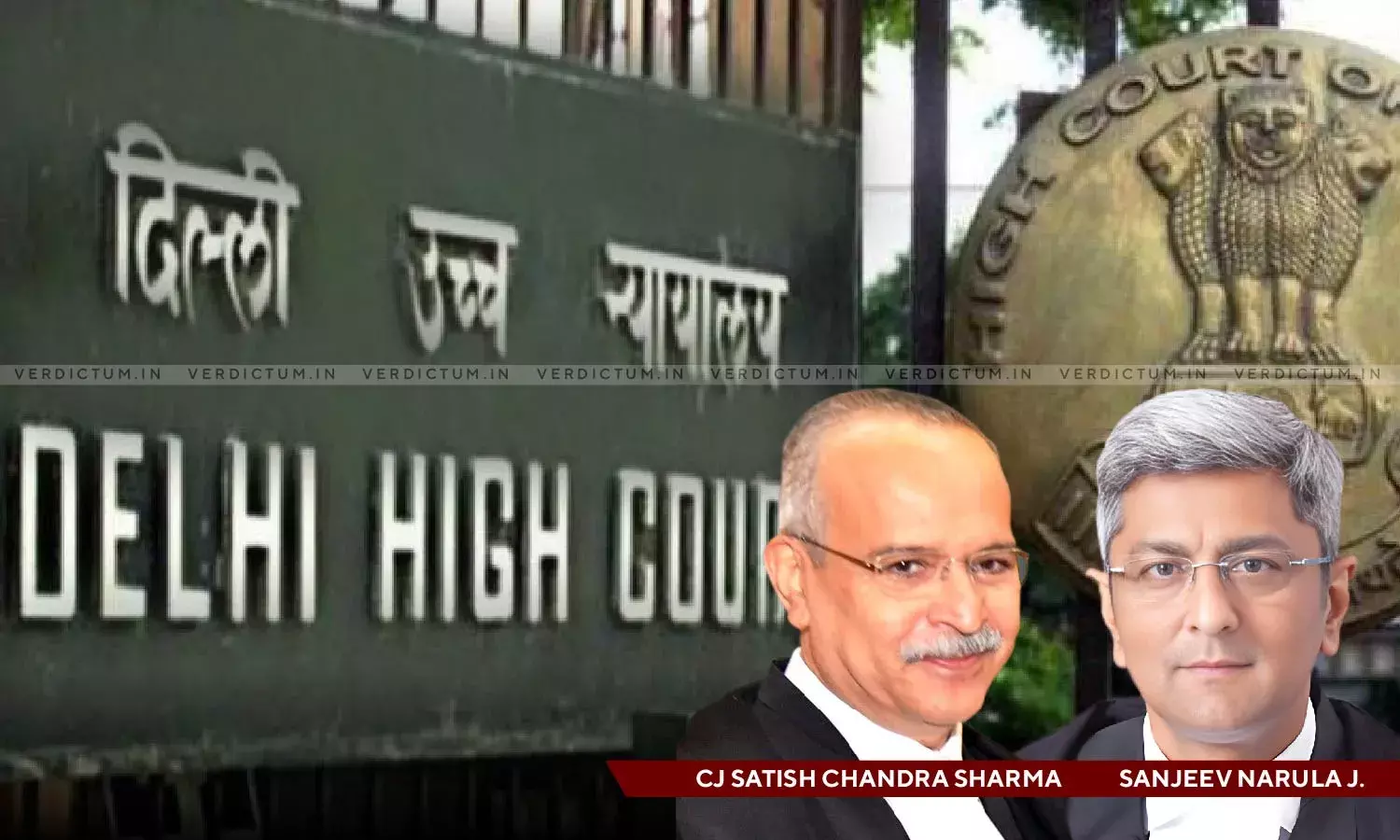Right To Conduct Business Is Subject To Reasonable Restrictions In Interest Of Public Welfare & Economic Balance: Delhi HC

While refusing to agree with the Petitioners’ contention that their right to do business under Article 19(1)(g) of the Constitution of India is being violated by the Tender floated by the Northern Railway, the Delhi High Court held that the right to conduct business is subject to reasonable restrictions in the interest of public welfare and economic balance.
The Division Bench of Chief Justice Satish Chandra Sharma and Justice Sanjeev Narula observed that “The Northern Railways’ decision to introduce new trains is a legitimate and essential step, aimed at enhancing railway services and meeting the evolving needs of the public. Such measures are essential for the efficient functioning of the railway system and cannot be considered as arbitrary or unconstitutional restrictions on Petitioners’ right to conduct business of their choice”.
The Bench also observed that the improvisation of railway operations should not be hindered by speculative apprehensions of adverse impacts on Petitioners’ business.
Advocate Manish Kohli appeared for the Petitioner, whereas CGSC Arunima Dwivedi appeared for the Respondent.
The brief facts of the case were that Petitioners have a long-standing association with Respondents [Northern Railways] for approximately fifteen years. During this time, the Petitioners entered multiple contracts with Indian Northern Railways for leasing of parcel vans for various train operations. One such contract is the Agreement to Lease a parcel cargo express train that operates from Alwar to New Guwahati. This agreement was executed on Mar 23, 2018, and was valid for six years. As per the terms contained therein, the Petitioners have agreed to pay a lumpsum freight rate of Rs. 35,32,155/- for each round trip of the leased parcel cargo express train. The Petitioners had a contractual obligation to maintain a ‘manifest’, which is a document containing essential information related to the consignments loaded in the parcel vans. Upon reviewing the manifests for the last six months, it came to light that the cargo train was operated by the Petitioners with significantly low occupancy. Despite lower-than-anticipated demand and low occupancy levels, the Petitioners continued to pay the full lease rental amount for each round trip. Later, Northern Railways issued a tender notice proposing the leasing of similar parcel cargo express trains to Royapuram. Concerned with the potential adverse impact on their business, the first Petitioner requested the respondent to withdraw the Tender, which was not paid heed. Hence, the Petitioners approached the High Court.
After considering the submission, the Bench observed that the Northern Railways’ argument that Petitioners lack the locus standi to challenge the Tender is well-founded, since the Petitioners willingly participated in the tender process, subjecting themselves to the rules and conditions governing the tender process.
“As a result, they emerged as the successful bidder, yet failed to complete the necessary formalities mentioned in the acceptance letter. Petitioners’ active engagement in the process and the subsequent success in securing the bid prevents them from now seeking quashing of the very same Tender”, added the Bench.
The Bench, therefore, clarified that engaging in opportunistic litigation undermines the fairness and credibility of the tendering process, creating an environment of unpredictability.
The High Court noted that the existing Agreement that governs leasing of the parcel cargo express train between Shakurbasti and New Guwahati to Petitioners, does not include any provision guaranteeing exclusivity of the train route to the Petitioners, which fact has been explicitly acknowledged by the Petitioners.
Consequently, as the Petitioners do not possess exclusive rights for the train route in question, there appears to be no legal ground warranting the grant of desired relief, added the Court.
The Bench also found that by initiating the present petition, the Petitioners essentially seek to prevent Northern Railways from issuing any tenders in respect of the relevant routes for the entire duration of the Agreement.
Thus, “by securing an interim stay, the Petitioners have effectively gained an unfair advantage by depriving the Respondents of potential financial benefits that could have been derived from the impugned Tender”, added the Bench.
Accordingly, the High Court dismissed the petition while imposing a cost of Rs.50 thousand on Petitioners, to be deposited to Delhi Police Welfare Funds.
Cause Title: D.G. Raj Commercial Pvt. Ltd. and Anr. v. General Manager, Northern Railway and Ors.

